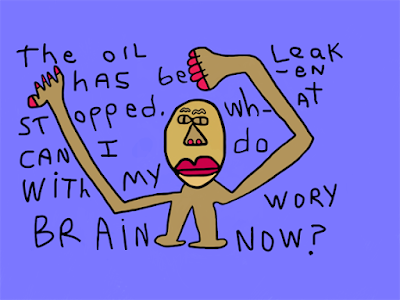Note: I wrote the following a couple of days ago. I mentioned to my wife what I had written and she (in her normal Zen way) let me know that I was taking sides, and that really there are good arguments for both sides. Of course she was right. Students will have to pay less which will make them happier (I guess), and banks will get smaller (which may make them more manageable in times like these). In any case, life is too complex to be certain about the effect of any action (
dependent origination in Buddhism).
Uncle Sam (US) is now
taking over student loans from banks. They will be still making a profit, and will put that profit into supporting community colleges and other educational institutions. And they will never raise loan rates when interest rates go up, like the banks do.
The article in the UT newspaper claimed this was a win-win situation for both US and the students... and the public at large.
The apparent brilliance of this act raised a number of questions in my mind. If Uncle Sam can run the student loan business more efficiently than banks, then could they also run most other businesses more efficiently as well? Clothing, home improvement stores, toys, art, oil drilling. What is their track record?
I assume that the banks will need less workers now that they aren't doing student loans. Will these workers now be hired by Uncle Sam? I assume too that the banks will not need bailing out again, given that one of their income sources has been curtailed.
If US is not able to actually run this loan business more efficiently then we must assume that they are (or will be) subsidizing it, especially when interest rates rise and loan rates do not. Is this still going to be a win-win-win situation?
Who are these brilliant business people who have shunned bank CEO wages to work for US? What do they know that people being paid 100x as much do not know?
There is an implication, as well, that banks have been "screwing" students with high interest rates. This message is bothersome to me, especially as we start to believe that banks and all other institutions that make a profit are in essence taking advantage of their clientele. The banking industry has provided the possibility for education for millions of kids. They have done countless good and should not be labeled a thief.
I suspect that, in the end, this program will cost the taxpayers untold dollars.
Can the US really charge less and still turn a profit? Can I jump over the moon?











